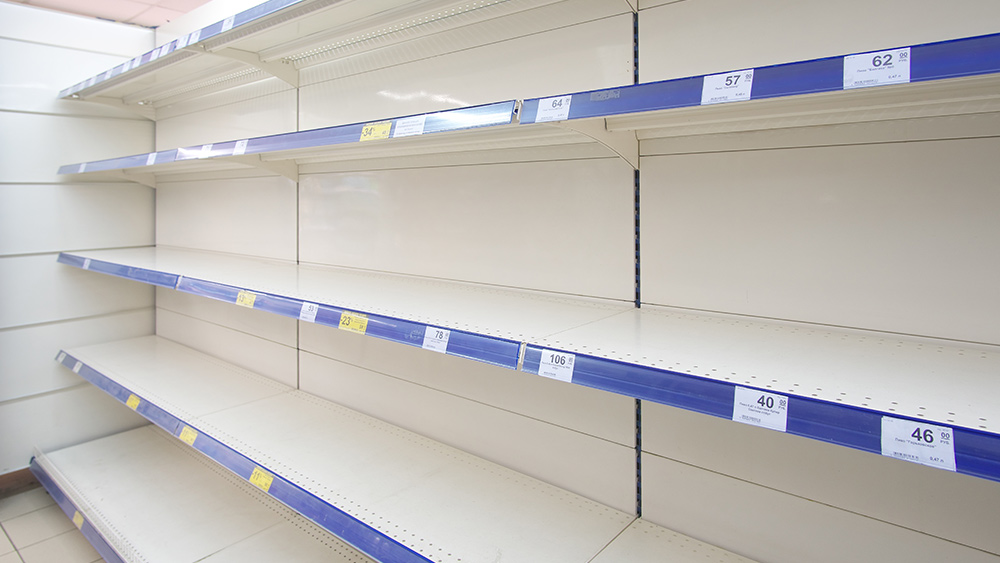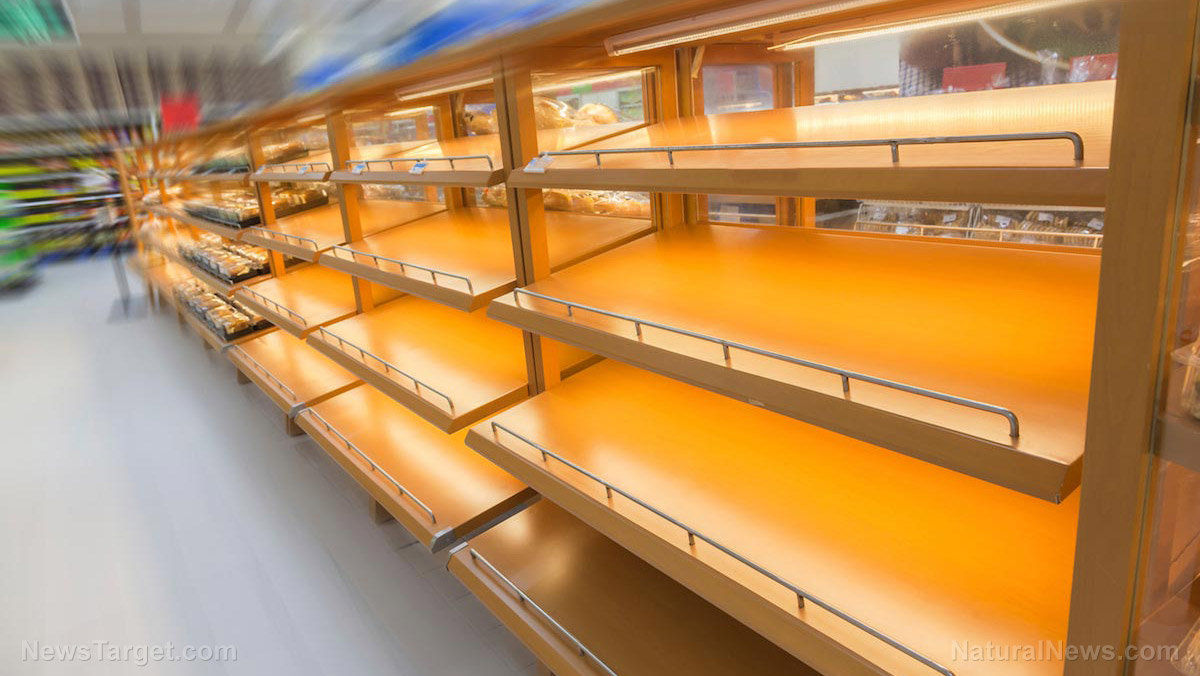Soaring inflation causing some Brits to SKIP MEALS just to make ends meet
03/16/2023 / By Ethan Huff

The cost-of-living crisis is heating up in Great Britain, where many households are reportedly cutting down on their meal intake in response to skyrocketing energy and food inflation.
A monthly survey commissioned by the Food Standards Agency (FSA) found that 8.1 percent of households in the United Kingdom missed a housing, bill, loan, or credit card payment during the month of February. That same month, 15 percent of the population, or about one in seven people, had to skip a meal due to rising costs.
More than one in four Brits, or 27 percent, indicated that they had to go without some food items in February. This is up from 21 percent of the UK population back in November.
To help out their family members, nine percent of the British population prioritized meals for other family members while four percent said they decided to use a food bank just to eat.
As for making adjustments to spending in order to make ends meet, an astounding 60 percent of UK households reported having to make such changes in order to cover utility bills, housing costs, groceries, school supplies, and/or medicines in the last month.
In some cases, UK households are having to cut back on items that are considered to be essentials. In some cases, families are having to dip into their savings, sell possessions, or borrow more cash just to survive.
(Related: Cheap food is a thing of the past in Great Britain, thanks to inflation.)
Most Brits had to turn down the heat and suffer cold physical discomfort this dark winter due to energy inflation
In an attempt to save on their energy bills, 72 percent, or roughly seven in 10, Brits say they had to turn down the heat this dark winter to keep their utility bills in check. Thirty-nine percent indicated having to turn down their water heaters or use less hot water, while 19 percent cooked fewer meals and ate cold food instead.
“Whilst the majority of consumers have used the heating less due to price rises, this behavior will be more extreme in some households than others,” a report from the FSA explains. “Whilst some may be able to save money on heating whilst still keeping their house sufficiently warm, others will not.”
Of those who decided to turn down the heat this winter in order to save on their energy bills, nearly 30 percent reported always feeling physical discomfort in the form of being too cold. More than four in 10, or 41 percent, said they sometimes felt cold, while just 29 percent said they rarely or never felt cold.
Overall, consumer confidence in the UK remains low – and it is quite obvious why. In February, just 38 percent of British consumers described their financial situation as “good” while nearly a quarter, or 24 percent, said their financial status is “poor.”
“That’ll show those Russians!” joked one commenter about how all of this could have been avoided had the West not provoked the “bear” in the first place, and later sabotaged the delivery of cheap and abundant energy from Russia’s Nord Stream pipelines.
“You mustn’t grumble,” wrote another, also sarcastically. “Starving for Ukraine is very Christian, and God’s reward (for idiots).”
Another flat-out blamed fake president Biden for blowing up the Nord Stream pipelines, writing that Biden “blasted the Brits back years” by destroying this critical supply line for cheap and abundant energy to Europe.
“As King Charles would say: “let them eat cake,'” wrote another, further noting that the UK’s “peasants” are not even as brave as the French who in the past rose up to “chop off heads” over this kind of thing.
The latest news about the coming mass starvation can be found at Collapse.news.
Sources for this article include:
Submit a correction >>
Tagged Under:
bubble, collapse, cost of living, crisis, debt collapse, economic collapse, energy supply, finance, finance riot, food collapse, food inflation, food supply, fuel supply, hunger, inflation, money supply, pensions, rationing, risk, scarcity, starvation
This article may contain statements that reflect the opinion of the author
RECENT NEWS & ARTICLES
COPYRIGHT © 2022 Rationing.News
All content posted on this site is protected under Free Speech. Rationing.News is not responsible for content written by contributing authors. The information on this site is provided for educational and entertainment purposes only. It is not intended as a substitute for professional advice of any kind. Rationing.News assumes no responsibility for the use or misuse of this material. All trademarks, registered trademarks and service marks mentioned on this site are the property of their respective owners.


















